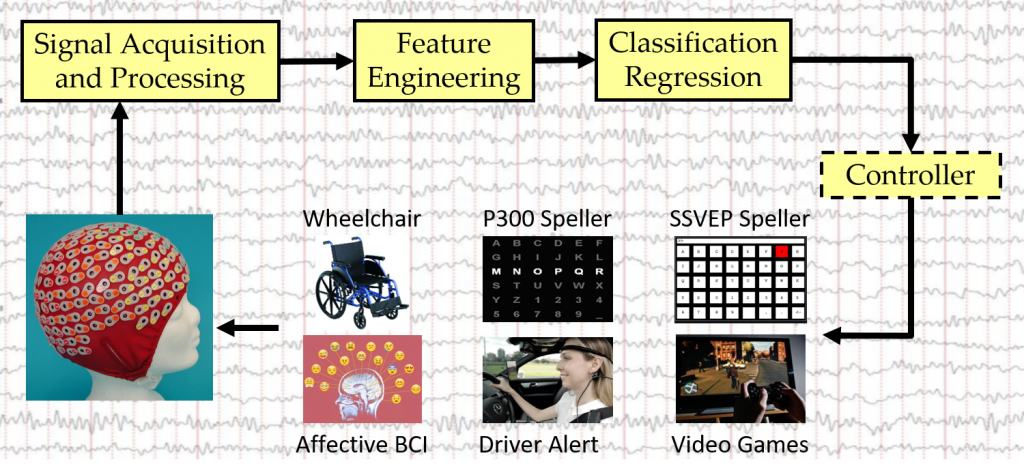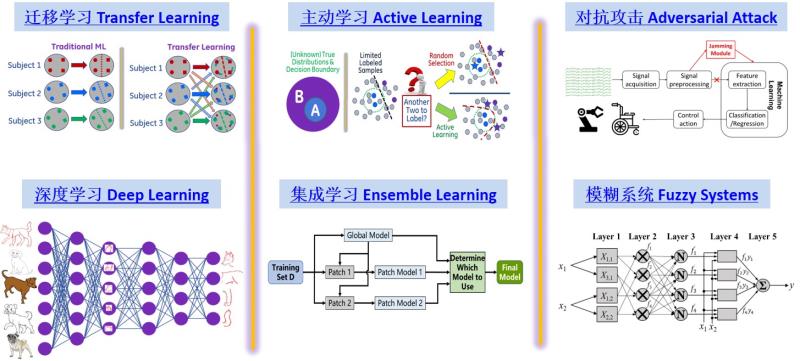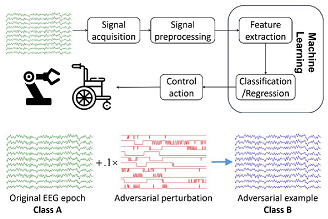Introduction
A Brain-Computer Interface (BCI) establishes a direct communication pathway between the brain and an external device (computer, robot, etc.). It is the ultimate means of human-machine interaction.
Our laboratory mainly studies non-invasive BCIs, particularly, signal processing and machine learning approaches to implement accurate, secure and privacy-preserving BCIs.

Machine learning is the core of artificial intelligence. Our laboratory mainly works on transfer learning, active learning, deep learning, ensemble learning, adversarial attacks, and fuzzy systems, and their applications in BCIs and smart healthcare.



